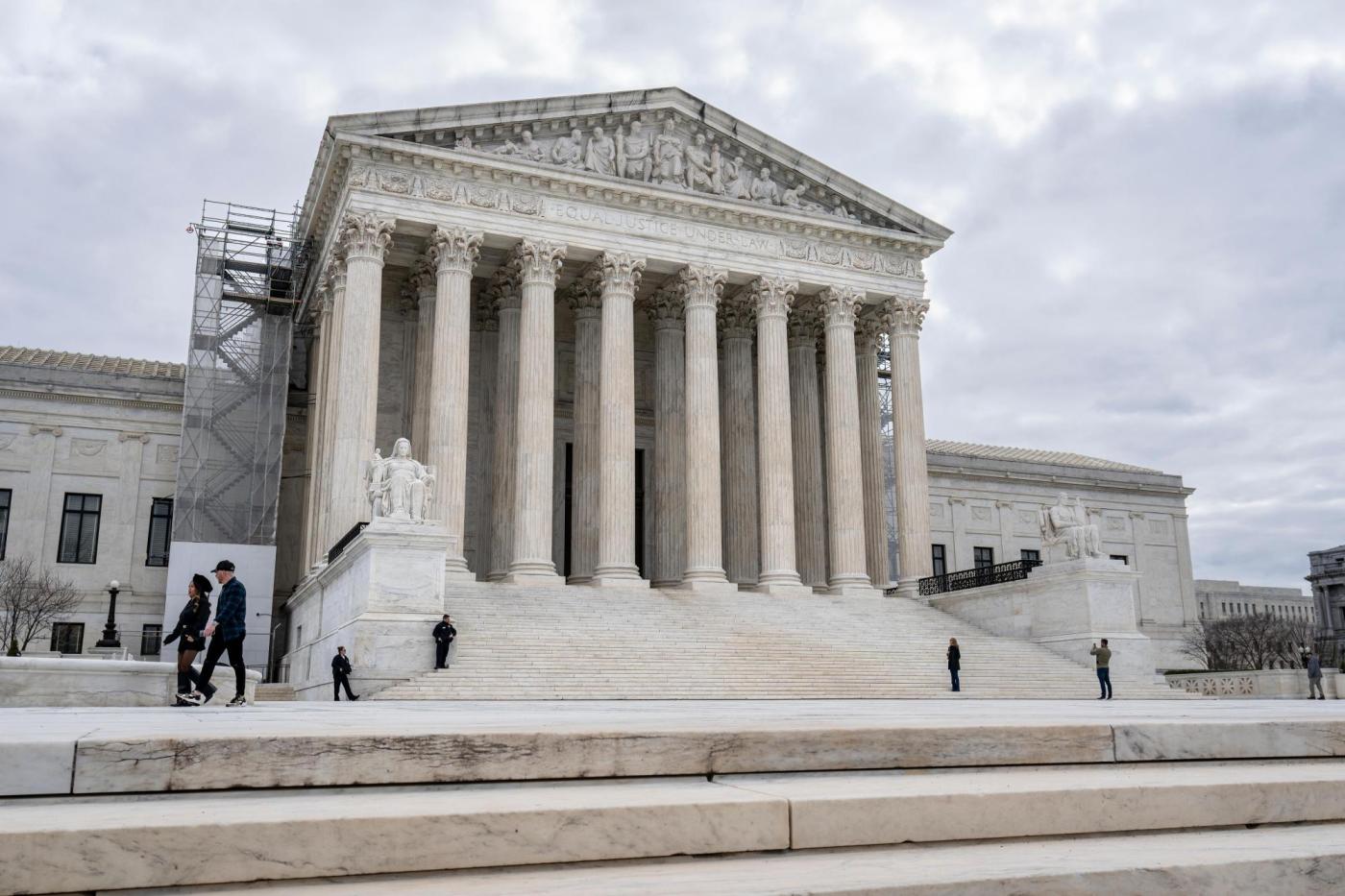
In victory for Trump, Supreme Court reverses states on ballot eligibility
Former President Donald Trump was handed a massive legal victory by the U.S. Supreme Court on Monday, when all nine justices agreed that states lack the power to remove any federal candidate from the ballot under the Fourteenth Amendment.
Though several of the justices apparently thought the final opinion of the majority went too far in proclaiming that a question of qualification asked under Section 3 of the Fourteenth Amendment must be answered by Congress, all of them apparently disagreed with a ruling out of Colorado which could have disqualified Trump from electoral consideration in that state.
“Responsibility for enforcing Section 3 against federal officeholders and candidates rests with Congress and not the States. The judgment of the Colorado Supreme Court therefore cannot stand. All nine Members of the Court agree with that result,” the majority of justices wrote in an unsigned opinion.
The court’s three liberal justices, in a concurring opinion laced with unacknowledged dissent, wrote: “The majority opines on which federal actors can enforce Section 3, and how they must do so. The majority shuts the door on other potential means of federal enforcement. We cannot join an opinion that decides momentous and difficult issues unnecessarily, and we therefore concur only in the judgment.”
Trump hailed the decision as an all-caps “BIG WIN FOR AMERICA” in a post on his Truth Social media platform.
“The unhinged Democrat plan to ERASE MY NAME crashed & burned,” he wrote in a fund-raising message not long after.
The unanimous decision by the nation’s highest court should clear away any state-level eligibility challenge that might still be pending, including one lodged in Massachusetts, Secretary of the Commonwealth Bill Galvin said at a Monday morning press conference.
“They’ve left it up to the voters and ultimately to Congress on the issue of the enforcement of the Fourteenth Amendment,” Galvin explained.
The question of Trump’s eligibility to hold office comes following his actions — or inactions — on Jan. 6th, 2021, when a large crowd of his supporters attended a rally he called at The Ellipse in Washington D.C., and where they answered explicit instructions from the former president to march on the U.S. Capitol to make their “voices heard.”
When the crowd arrived at the Capitol, they proceeded to attack police, force their way in, and ransack the building, effectively halting the certification of Trump’s loss to President Biden by members of Congress and Vice President Mike Pence. Trump apparently sat inside the White House for several hours and watched the violence unfold on television.
Some legal scholars argued, and Colorado’s Supreme Court eventually agreed, that the events of that day met the bar for “insurrection” insofar as the Fourteenth Amendment is concerned and that Trump’s alleged role in trying to overturn the election he lost should keep him out of office, permanently.
The Supreme Court’s decision to the contrary is especially poignant considering tomorrow’s slate of primary elections, when a large swathe of the country is scheduled to head to the polls. A number of other jurisdictions, such as Maine and Illinois, were also grappling with the same legal question. The matter is now seemingly settled.
“I have reviewed the Anderson decision carefully. The U.S. Supreme Court has ruled that individual states lack authority to enforce Section Three of the Fourteenth Amendment with respect to federal offices,” Maine Secretary Shenna Bellows Bellows wrote. “Consistent with my oath and obligation to follow the law and the Constitution, and pursuant to the Anderson decision, I hereby withdraw my determination that Mr. Trump’s primary petition is invalid.”
The MassGOP, which was in the process of defending Trump’s right to appear on the Bay State’s ballots before the Supreme Judicial Court, hailed the unanimous decision as a “victory for democracy.”
“Citizens have the right to vote for whomever they feel most confident in representing them, and the Supreme Court’s decision reaffirms this fundamental right,” the party said in a statement.
Marc Salinas, the attorney representing the MassGOP in the state courts, said the Supreme Court had reached an obvious conclusion.
“States cannot decide who qualifies to run for Federal office – ‘especially the Presidency.’ The Court explicitly stated that to hold otherwise would result in ‘chaos.’ The efforts to keep Donald Trump off the state ballots were purely politically motivated. When you take politics out of the analysis this was the only correct result. That’s why we saw a unanimous decision from the Court,” he said in a statement released by the MassGOP.
The high court’s ruling, according to Galvin, means that every state primary and the general election in November will present voters who wish to see Trump kept out of the White House or returned there for a second term with an opportunity to have their voices heard. The decision on Trump’s eligibility for office has been left up to them, Galvin said.
“This morning’s decision makes it all the more important that those voters who have opinions on the presidency, take the opportunity to express them,” he said. “Because clearly what the court said today was that they will not do anything to decide the outcome of the presidential election.”


